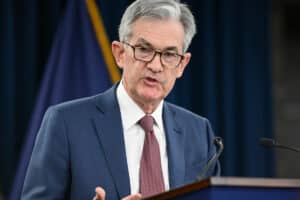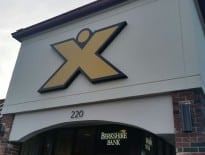Federal Reserve Chair Jerome Powell warned Wednesday that the viral epidemic is endangering the modest economic recovery that followed a collapse in hiring and spending this spring. As a result, he said, the Fed plans to keep interest rates pinned near zero well into the future.
That faltering economy, pressured by a resurgence of the virus, has heightened the need for Congress to continue providing significant financial aid, Powell said. Members of the House and Senate are negotiating a new package but are nowhere near agreement. Senate Republicans and the White House are proposing a plan that would provide less help for unemployed Americans than they are now receiving.
Speaking at a virtual news conference after a two-day Fed meeting ended, Powell said the economy had rebounded after nearly all states lifted their broad business shutdown measures in May. But since then, he noted, as new confirmed cases have soared, measures of spending and hiring have slipped or plateaued at low levels.
“Now that the cases have spiked again, the early data … suggest that there is a slower pace of growth at least for now,” he said. “We don’t know how deep or for how long it will be.”
The economic stumble, amid the worsened viral outbreak, underscores the connection between the virus and the economy’s ability to sustain any recovery, the chairman said. This point was also highlighted in the Fed’s statement, which added a new sentence: “The path of the economy will depend significantly on the course of the virus.”
That observation was an acknowledgement that uncertainty about when the health crisis might be solved has complicated the Fed’s ability to set interest rate policy.
It’s also a point that Powell has made, in one way or another, for months as most states have succeeded only fitfully in controlling the virus and the ability of businesses to stay open. And it suggested that Powell and the Fed envision a prolonged recovery that will depend in large part on how well the U.S. can contain the pandemic.
“A full recovery is unlikely until people are confident that it is safe to re-engage in a broad range of activities,” Powell said.
In the meantime, he said, “We are committed to using our full range of tools to support the economy. We will continue to use these powers until we are confident we are solidly on the road to recovery.”
Yet despite its concerns, the Fed announced no new policies. It said it will also continue to buy billions of dollars in Treasury and mortgage bonds each month, which are intended to inject cash into financial markets and spur borrowing and spending.
Powell reiterated his belief that Congress needs to approve more economic aid. Legislators is in the early stages of negotiating an economic relief package that might extend several key support programs, such as the expiring $600-a-week unemployment benefit. That benefit will likely be reduced in any final legislation. With the two parties far apart, the federal jobless benefit will likely lapse for at least several weeks for about 30 million people who are unemployed. That would likely slow consumer spending and weaken the economy.







